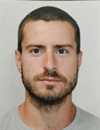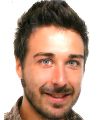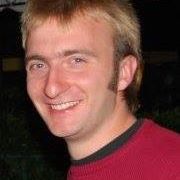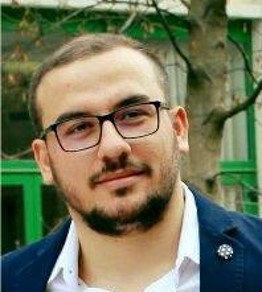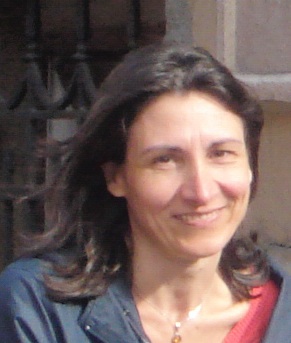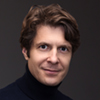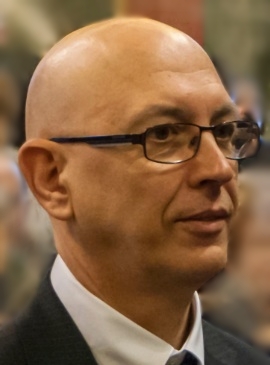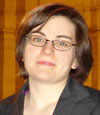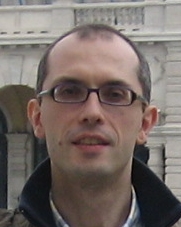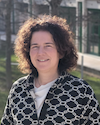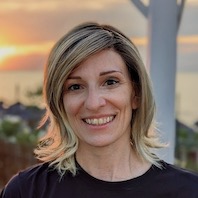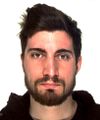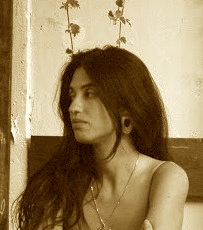Studying at the University of Verona
Here you can find information on the organisational aspects of the Programme, lecture timetables, learning activities and useful contact details for your time at the University, from enrolment to graduation.
Academic calendar
The academic calendar shows the deadlines and scheduled events that are relevant to students, teaching and technical-administrative staff of the University. Public holidays and University closures are also indicated. The academic year normally begins on 1 October each year and ends on 30 September of the following year.
Course calendar
The Academic Calendar sets out the degree programme lecture and exam timetables, as well as the relevant university closure dates..
| Period | From | To |
|---|---|---|
| I semestre | Oct 1, 2020 | Jan 29, 2021 |
| II semestre | Mar 1, 2021 | Jun 11, 2021 |
| Session | From | To |
|---|---|---|
| Sessione invernale d'esame | Feb 1, 2021 | Feb 26, 2021 |
| Sessione estiva d'esame | Jun 14, 2021 | Jul 30, 2021 |
| Sessione autunnale d'esame | Sep 1, 2021 | Sep 30, 2021 |
| Session | From | To |
|---|---|---|
| Sessione Estiva | Jul 19, 2021 | Jul 19, 2021 |
| Sessione Autunnale | Oct 19, 2021 | Oct 19, 2021 |
| Sessione Autunnale Dicembre | Dec 7, 2021 | Dec 7, 2021 |
| Sessione Invernale | Mar 17, 2022 | Mar 17, 2022 |
| Period | From | To |
|---|---|---|
| Festa dell'Immacolata | Dec 8, 2020 | Dec 8, 2020 |
| Vacanze Natalizie | Dec 24, 2020 | Jan 3, 2021 |
| Epifania | Jan 6, 2021 | Jan 6, 2021 |
| Vacanze Pasquali | Apr 2, 2021 | Apr 5, 2021 |
| Santo Patrono | May 21, 2021 | May 21, 2021 |
| Festa della Repubblica | Jun 2, 2021 | Jun 2, 2021 |
Exam calendar
Exam dates and rounds are managed by the relevant Science and Engineering Teaching and Student Services Unit.
To view all the exam sessions available, please use the Exam dashboard on ESSE3.
If you forgot your login details or have problems logging in, please contact the relevant IT HelpDesk, or check the login details recovery web page.
Should you have any doubts or questions, please check the Enrollment FAQs
Academic staff
 maurizio.boscaini@univr.it
maurizio.boscaini@univr.it
 alberto.burato@univr.it
alberto.burato@univr.it
 vittoria.cozza@univr.it
vittoria.cozza@univr.it
 mila.dallapreda@univr.it
mila.dallapreda@univr.it
 rosanna.laking@univr.it
rosanna.laking@univr.it
 giulio.mazzi@univr.it
giulio.mazzi@univr.it
 franco.zivcovich@univr.it
franco.zivcovich@univr.it
Study Plan
The Study Plan includes all modules, teaching and learning activities that each student will need to undertake during their time at the University.
Please select your Study Plan based on your enrollment year.
1° Year
| Modules | Credits | TAF | SSD |
|---|
Computer Architecture
2° Year activated in the A.Y. 2021/2022
| Modules | Credits | TAF | SSD |
|---|
3° Year activated in the A.Y. 2022/2023
| Modules | Credits | TAF | SSD |
|---|
1 module among the following| Modules | Credits | TAF | SSD |
|---|
Computer Architecture
| Modules | Credits | TAF | SSD |
|---|
| Modules | Credits | TAF | SSD |
|---|
1 module among the following| Modules | Credits | TAF | SSD |
|---|
Legend | Type of training activity (TTA)
TAF (Type of Educational Activity) All courses and activities are classified into different types of educational activities, indicated by a letter.
Type D and Type F activities
Le attività formative in ambito D o F comprendono gli insegnamenti impartiti presso l'Università di Verona o periodi di stage/tirocinio professionale.
Nella scelta delle attività di tipo D, gli studenti dovranno tener presente che in sede di approvazione si terrà conto della coerenza delle loro scelte con il progetto formativo del loro piano di studio e dell'adeguatezza delle motivazioni eventualmente fornite.
| years | Modules | TAF | Teacher |
|---|---|---|---|
| 3° | Control theory | D |
Riccardo Muradore
(Coordinator)
|
| 3° | Biomedical Data and Signal Processing | D |
Silvia Francesca Storti
(Coordinator)
|
| 3° | Matlab-Simulink programming | D |
Bogdan Mihai Maris
(Coordinator)
|
| years | Modules | TAF | Teacher |
|---|---|---|---|
| 3° | Introduction to 3D printing | D |
Franco Fummi
(Coordinator)
|
| 3° | Python programming language | D |
Vittoria Cozza
(Coordinator)
|
| 3° | HW components design on FPGA | D |
Franco Fummi
(Coordinator)
|
| 3° | Rapid prototyping on Arduino | D |
Franco Fummi
(Coordinator)
|
| 3° | Protection of intangible assets (SW and invention)between industrial law and copyright | D |
Roberto Giacobazzi
(Coordinator)
|
| years | Modules | TAF | Teacher | |
|---|---|---|---|---|
| 1° | Subject requirements: mathematics | D |
Rossana Capuani
|
|
| 3° | The fashion lab (1 ECTS) | D |
Maria Caterina Baruffi
(Coordinator)
|
|
| 3° | LaTeX Language | D |
Enrico Gregorio
(Coordinator)
|
|
Physics 2 (2021/2022)
Teaching code
4S00035
Teacher
Coordinator
Credits
6
Language
Italian
Scientific Disciplinary Sector (SSD)
FIS/01 - EXPERIMENTAL PHYSICS
Period
Secondo semestre dal Mar 7, 2022 al Jun 10, 2022.
Learning outcomes
The course aims to provide the tools for the understanding of electromagnetism and optics phenomena in classical physics, from the basic physical principles to the methodologies for applying the physical laws to the solution of problems. At the end of the course the student will: - have to demonstrate knowledge and understanding in applied contexts of the foundations that make up the functioning of an electromagnetic physical system; - have the ability to apply the acquired knowledge and have understanding skills to model aspects of an electromagnetic physical problem or parts of a device; - know how to interpret the physical meaning of a measurement acquired with optoelectronic instruments; - have the ability to broaden the knowledge to deepen topics of electromagnetism in an autonomous way.
Program
- ELECTROSTATICS IN VACUUM
Experimental facts. Electric charge. Structure of matter. Coulomb law. Electric field E. Work of the electric field. Electrostatic potential energy and electrostatic potential. Flux of the field E. Gauss law and applications. Discontinuities of the electric field. Differential equations of the electric field. Poisson and Laplace equations.
- ELECTROSTATICS IN CONDUCTORS
Conductors in equilibrium. Electrostatic induction. Electrostatic surface pressure. Cavity in a conductor. Electrostatic screening. Capacity. Capacitors.
- ELECTROSTATICS IN DIELECTRICS
Electric dipole. Dipole in external field E. Energy of a dipole. Uniform / non-uniform polarization. Linear dielectrics. Electrostatics equations in dielectrics. Field D "electric displacement".
- ELECTROSTATIC ENERGY
system of charges, system of conductors. Energy of a capacitor in vacuum and in dielectric media. Energy of the electric field. Motion of charges in electric field.
- ELECTRICAL CURRENTS
Electric current, electromotive force. Classical theory of electrical conduction. Continuity equation for the charge.
Ohm law, joule effect, resistors. Kirchoff laws, elementary circuits. Charge / discharge of a capacitor.
- MAGNETOSTATIC IN VACUUM
Experimental facts. Magnetic field B, F of Lorentz, II law of Laplace. Motion of charges in magnetic field. Hall effect, measure of B. Magnetic dipole. Dipole in external field B. Field B of stationary currents. Circulation Ampère law and applications. Discontinuities of the magnetic field. I law of Laplace. Field B of a moving charge. Solenoidal fields, concatenated flux. Differential equations of the magnetic field.
- TIME-VARYING FIELDS
Electromagnetic induction - experimental facts, flux law. Induced electric field and Faraday law. Lenz law. Energy balance. Mutual Inductance. Self-inductance, inductances. RL circuit.
Magnetic energy: intrinsic energy of the current, system of stationary currents. Energy of the magnetic field.
Maxwell equations in integral and local form. Displacement current and Ampère-Maxwell law. Radiation of a circuit.
- ELECTROMAGNETIC WAVES
Recalls on waves: transverse waves, longitudinal waves, harmonic wave, plane waves, spherical waves. D'Alembert wave equation. Maxwell equations in vacuum and the solution of e.m waves. Polarization. Speed of light, energy transported, intensity. Polarization. Electromagnetic spectrum. Principles of Optics.
Examination Methods
To pass the examination the students have to demonstrate:
- knowledge and understanding of the principles and the physical phenomena of classical electromagnetism
- to possess critical skills in the observation of electrical and magnetic phenomena with scientific method and adequate mathematical formalism
- to know how to apply the principles and the laws of physics to the different contexts for solving problems of electromagnetism.
Written examination (2 hours):
The exam includes
1) electromagnetism exercises (related to the exercises program carried out);
2) theory questions (related to the entire program).
Optional oral examination:
on the topics of the course program
Career prospects
Module/Programme news
News for students
There you will find information, resources and services useful during your time at the University (Student’s exam record, your study plan on ESSE3, Distance Learning courses, university email account, office forms, administrative procedures, etc.). You can log into MyUnivr with your GIA login details: only in this way will you be able to receive notification of all the notices from your teachers and your secretariat via email and soon also via the Univr app.
Graduation
List of theses and work experience proposals
| theses proposals | Research area |
|---|---|
| Analisi e percezione dei segnali biometrici per l'interazione con robot | AI, Robotics & Automatic Control - AI, Robotics & Automatic Control |
| Integrazione del simulatore del robot Nao con Oculus Rift | AI, Robotics & Automatic Control - AI, Robotics & Automatic Control |
| Domain Adaptation | Computer Science and Informatics: Informatics and information systems, computer science, scientific computing, intelligent systems - Computer graphics, computer vision, multi media, computer games |
| Domain Adaptation | Computer Science and Informatics: Informatics and information systems, computer science, scientific computing, intelligent systems - Machine learning, statistical data processing and applications using signal processing (e.g. speech, image, video) |
| BS or MS theses in automated reasoning | Computing Methodologies - ARTIFICIAL INTELLIGENCE |
| Domain Adaptation | Computing Methodologies - IMAGE PROCESSING AND COMPUTER VISION |
| Domain Adaptation | Computing methodologies - Machine learning |
| Dati geografici | Information Systems - INFORMATION SYSTEMS APPLICATIONS |
| Analisi e percezione dei segnali biometrici per l'interazione con robot | Robotics - Robotics |
| Integrazione del simulatore del robot Nao con Oculus Rift | Robotics - Robotics |
| BS or MS theses in automated reasoning | Theory of computation - Logic |
| BS or MS theses in automated reasoning | Theory of computation - Semantics and reasoning |
| Proposte di tesi/collaborazione/stage in Intelligenza Artificiale Applicata | Various topics |
| Proposte di Tesi/Stage/Progetto nell'ambito dell'analisi dei dati | Various topics |
Attendance
As stated in the Teaching Regulations for the A.Y. 2022/2023, attendance at the course of study is not mandatory.
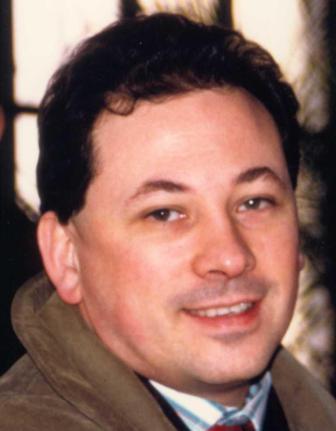
 +39 045 802 7980
+39 045 802 7980


